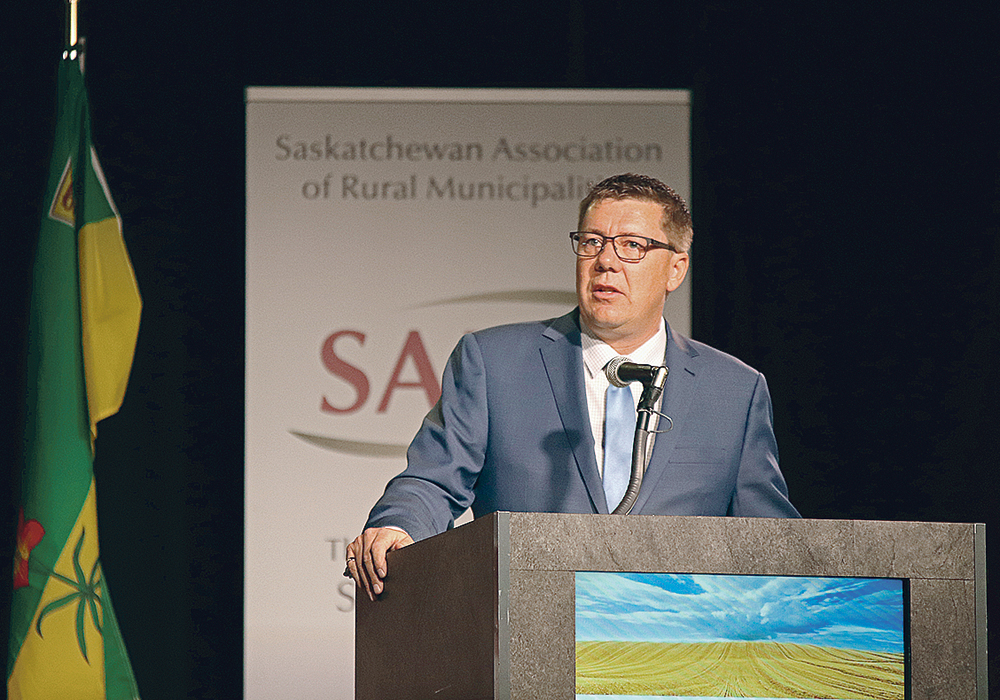Scott Moe says the feds need to engage with China and resolve a dispute that has already affected canola exports
Saskatchewan Premier Scott Moe sent a strongly worded message to the federal government last week suggesting the Liberal government should focus more on resolving a looming market-access issue that could have a devastating impact on the Canadian canola industry.
In a March 13 address to members of the Saskatchewan Association of Rural Municipalities (SARM), Moe said Ottawa needs to engage with China and resolve a dispute that has already affected canola exports from one Canadian grain-handling company and has the potential to affect other players in the Canadian canola industry, including exporters and western Canadian producers.
Read Also

Canadian Food Inspection Agency red tape changes a first step: agriculture
Farm groups say they’re happy to see action on Canada’s federal regulatory red tape, but there’s still a lot of streamlining left to be done
“It is absolutely mandatory that we engage with our trading partners,” Moe said.
“International engagement is absolutely necessary when one in five jobs in our province is totally dependent on exports.”
Canada is currently embroiled in a diplomatic dispute with China that’s threatening exports of Saskatchewan’s most valuable cash crop.
Moe said engaging with key trade partners including the United States, India and China is critically important to the health of the provincial and national economy.
“On the international trade front, there are some very serious and immediate threats that we’re facing, particularly in agriculture,” Moe said.
“There’s a rising tide of protectionism in some of our largest markets… (but) I’ve publicly wondered if the federal government has shared our sense of urgency.“
At a time when Canada’s canola trade with China is under threat, the federal government has been “focused exclusively on managing a political crisis that is really of its own making,” Moe added.
The SNC Lavalin affair is a political crisis caused by the Trudeau government’s desire to safeguard 9,000 jobs in Quebec, he said.
“This morning, I say to our prime minister: sir, you are not the prime minister of Quebec. You are the prime minister for all Canadians, and that includes Western Canada.”
The Saskatchewan government has been openly critical of Ottawa’s plan to control pollution through the imposition of a federal carbon tax.
Saskatchewan has a “strong difference of opinion” with Ottawa when it comes to federal policies relating to resource development, Moe added.
Ottawa’s newly appointed agriculture minister, Marie-Claude Bibeau, travelled to Western Canada last week making stops in British Columbia, Alberta and Manitoba, but skipped over Saskatchewan.
Moe said the federal agriculture minister’s failure to meet with her provincial counterpart in Saskatchewan — Canada’s largest producer of canola — was disappointing.
It was “disappointing and a little bit confusing quite frankly … that a new ag minister that wants to engage with the industry would make a western Canadian tour, hit three western Canadian provinces (but) miss the largest agri-food exporting province in the nation,” Moe said.
SARM president Ray Orb said the issue of suspended canola exports to China is a “huge concern” to rural taxpayers, adding that the province’s farmers and rural municipalities are eager to learn how Ottawa plans to address the problem.
“We think the federal government should have this as one of their top priorities,” said Orb, who urged Ottawa to send a delegation to China.
“We need this issue resolved now. Canola prices have dropped already and futures for canola are under a lot of pressure right now.
“The profits from canola are what keep our Saskatchewan farms viable, so it’s a huge issue.”
















